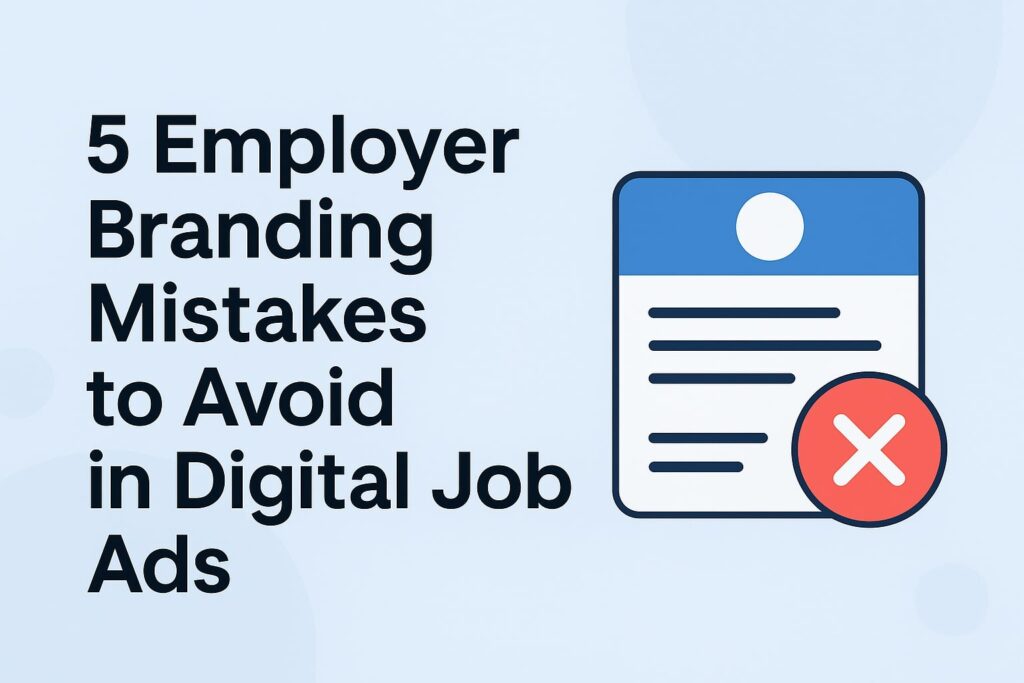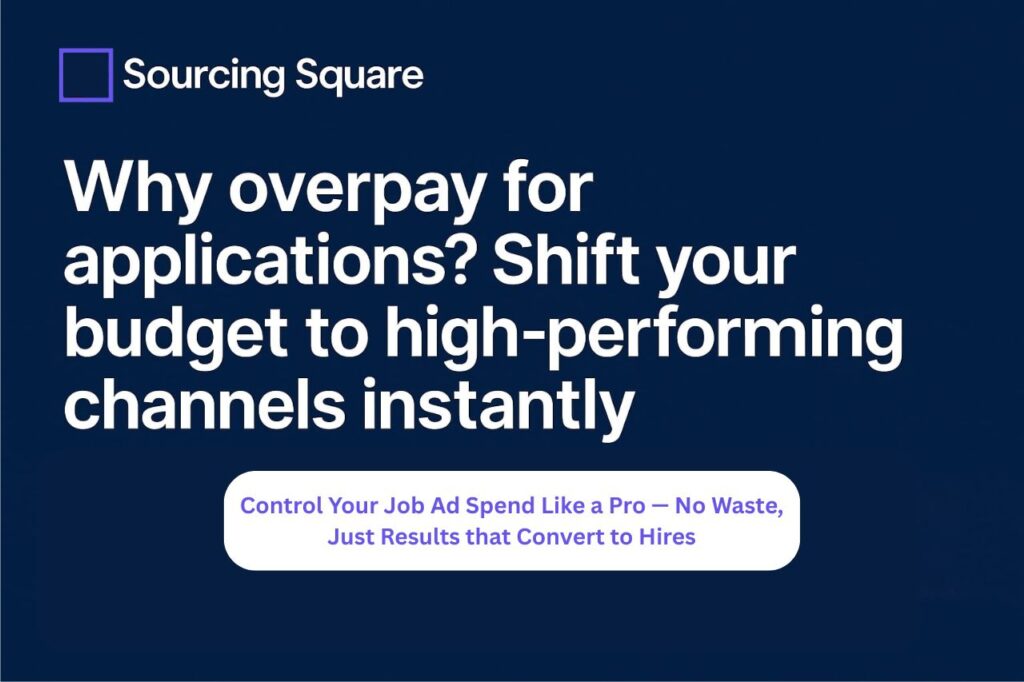In today’s competitive job market, attracting top talent requires a strategic and creative approach to recruitment. A well-executed recruitment campaign can make all the difference in securing the best candidates for your organization. Marketing plays a pivotal role in this process, as it involves promoting your company and its opportunities to potential candidates effectively.
Recruitment Marketing Explained:
Recruitment marketing is a multifaceted approach to talent acquisition that applies marketing principles to attract, engage, and nurture potential candidates. Unlike traditional recruiting, which focuses solely on filling immediate job openings, recruitment marketing takes a proactive and strategic approach to building relationships with both active and passive job seekers. It involves crafting compelling employer branding messages to showcase the company culture, values, and career opportunities. Through various marketing channels such as social media, job boards, career fairs, and employer branding campaigns, recruitment marketers aim to create a positive and memorable candidate experience.
By leveraging data analytics and targeted messaging, recruitment marketing endeavors to reach the right candidates at the right time with the right message. Ultimately, the goal of recruitment marketing is to establish the organization as an employer of choice and attract top talent to support its long-term growth and success.
In this article, we’ll explore ten expert marketing tips to help you craft a successful recruitment campaign that stands out from the crowd.
10 Expert Marketing Tips for a Successful Recruitment Campaign
1- Define Your Target Audience
Before diving into any recruitment campaign, it’s essential to identify and understand your target audience. Who are the ideal candidates for your organization? What skills, qualifications, and experiences are you looking for? By clearly defining your target audience, you can tailor your messaging and marketing efforts to resonate with the right individuals.
2- Develop Compelling Employer Branding
Your employer brand is what sets your organization apart and attracts top talent. Invest time and resources into developing a compelling employer brand that highlights your company culture, values, and opportunities for growth. Showcase testimonials from current employees, highlight company achievements, and provide insights into what it’s like to work at your organization. Consistent branding across all recruitment materials will reinforce your employer brand and attract candidates who align with your values.
3- Leverage Social Media Platforms
Social media has revolutionized the way companies approach recruitment. Utilize platforms like LinkedIn, Facebook, Twitter, and Instagram to promote your job openings, share company updates, and engage with potential candidates. Create visually appealing content, such as videos, infographics, and employee spotlights, to showcase your company culture and attract attention. Additionally, actively participate in relevant industry groups and forums to expand your reach and connect with passive candidates.
4- Optimize Your Careers Page
Your company’s careers page is often the first point of contact for potential candidates. Make sure it’s optimized for both search engines and user experience. Clearly list available job openings, provide detailed job descriptions, and include information about your company culture, benefits, and perks. Incorporate multimedia elements, such as photos and videos, to make your careers page visually engaging and informative. Don’t forget to make the application process simple and intuitive to encourage more candidates to apply.
5- Implement Employee Referral Programs
Your current employees can be powerful advocates for your company and a valuable source of referrals. Implement an employee referral program that incentivizes employees to refer qualified candidates for open positions. Offer rewards or bonuses for successful referrals, and regularly promote the program internally to keep it top of mind. Not only does this help you tap into your employees’ networks, but it also reinforces a sense of camaraderie and teamwork within your organization.
6- Use Data Analytics for Targeted Marketing
Harness the power of data analytics to make informed decisions and optimize your recruitment marketing efforts. Track metrics such as website traffic, application rates, and candidate demographics to identify which channels and strategies are most effective. Use this data to refine your messaging, allocate resources efficiently, and target your campaigns towards the most promising candidate segments. Continuously monitor and analyze performance metrics to ensure ongoing success.
7- Engage with Passive Candidates
While active job seekers are actively looking for new opportunities, passive candidates may not be actively searching but could be open to the right offer. Engage with passive candidates through targeted outreach efforts, such as personalized emails, LinkedIn messages, or networking events. Highlight the unique opportunities and benefits your organization offers, and tailor your messaging to resonate with each candidate’s interests and career aspirations. Building relationships with passive candidates over time can lead to future hires when the timing is right.
8- Showcase Your Employee Value Proposition (EVP)
Your Employee Value Proposition (EVP) outlines what makes your organization an attractive employer and why candidates should choose to work for you. Clearly communicate your EVP in all recruitment materials, emphasizing factors such as career development opportunities, work-life balance, compensation, and company culture. Use storytelling and real-life examples to bring your EVP to life and demonstrate how your organization fulfills its promises to employees. A strong EVP can significantly impact candidate perception and drive interest in your opportunities.
9- Utilize Content Marketing
Content marketing is a powerful tool for attracting and engaging potential candidates throughout the recruitment process. Create informative and relevant content, such as blog posts, articles, whitepapers, and case studies, that addresses common industry challenges, offers career advice, or showcases thought leadership within your organization. Distribute this content through your website, social media channels, email newsletters, and industry publications to position your company as a trusted resource and attract qualified candidates organically.
10- Monitor and Adjust Your Strategy
Effective recruitment marketing requires ongoing monitoring and optimization to stay ahead of the competition. Regularly review key performance indicators, solicit feedback from candidates and employees, and stay informed about industry trends and best practices. Be prepared to adapt your strategy based on changing market conditions, candidate preferences, and the evolving needs of your organization. By continuously refining your approach, you can ensure that your recruitment campaigns remain effective and impactful over time.
Conclusion
A successful recruitment campaign requires a strategic combination of marketing tactics, employer branding efforts, and candidate engagement strategies. By following these ten expert marketing tips, you can create a compelling recruitment campaign that attracts top talent, strengthens your employer brand, and drives meaningful results for your organization. Remember to stay agile, adapt to changes in the market, and continuously optimize your approach to stay ahead of the competition. With the right strategy and execution, you can build a talented team that propels your organization towards success.
Sourcing Square facilitates recruitment campaigns by providing targeted candidate sourcing solutions, leveraging data analytics and personalized messaging to attract top talent. Their platform enhances employer branding efforts, optimizing recruitment marketing strategies for successful talent acquisition.




